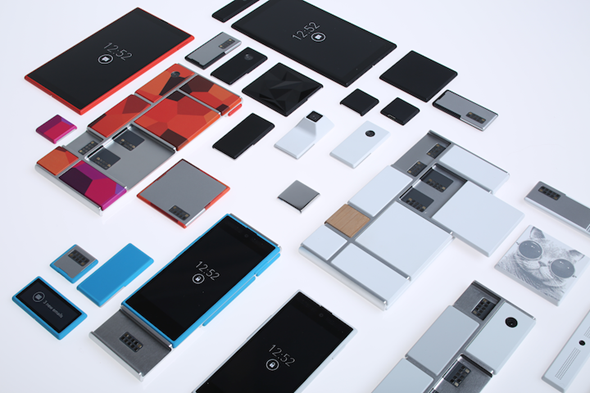Google has several innovative projects on the go at any one time, and while the world continues to be fascinating by Project Glass, Project Ara – the company’s endeavor to build a modular smartphone that allows specific hardware features to be swapped in and out at will – has gathered a significant amount of interest in recent weeks. It’s a concept that, if the Big G manages to pull it off, could really change the face of the smartphone market, and with a couple of teasers already having been released by the Project Ara team, we’re now hearing that the first modular handset will be available from January next year.
Given the current shape of the smartphone industry, we’re often grateful if we can change a dead battery or add a little extra storage space without having to reach for the T40 screwdriver, but project Ara aims to make the upgrading of a handset very simple indeed. As opposed to purchasing a smartphone and then waiting on its successor twelve months later, you’ll instead be able to upgrade every aspect, with your Project Ara smartphone being a mere skeletal shell from which each component can be added or removed.

In essence, Project Ara will allow a user to harness the type of freedom available at desktop level, with PC aficionados able to customize their graphics, processor, RAM and storage space by slotting these components into their custom rig.
At the start, we gathered that Project Ara will be aimed at the lower-end of the market, allowing users in developing markets to build their way up to owning a device somewhere representative of the technologies of today. From the beginning, the backbone of the device and all of the components will be crafted in-house by Google, but the plan is to eventually allow third-party developers to get in on the act and take the project to the next level.
At the first Project Ara Developers Conference in San Francisco, Google confirmed that the first, $50 smartphone will be available in January, running on an adapted version of Android that will be completed in December.

The idea of a smartphone with interchangeable modules is certainly an appealing one, and with consumers growing continually bemused with their new handset being succeeded so quickly after they’ve made a purchase, we could see interest in Ara from all corners of the market.
(Source: CNet)
You may also like to check out:
You can follow us on Twitter, add us to your circle on Google+ or like our Facebook page to keep yourself updated on all the latest from Microsoft, Google, Apple and the Web.

